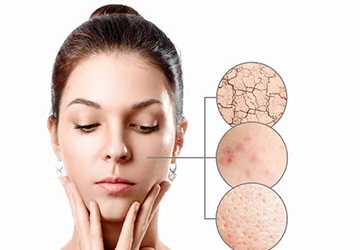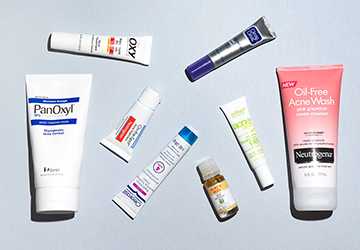Combating Acne Strategies for Prevention and Effective Treatment
Acne breakouts can be frustrating and even painful, affecting people of all ages and skin types. While acne is often linked to hormonal changes during puberty, many adults also suffer from acne, often due to stress, diet, and environmental factors. Understanding how to prevent and treat acne can significantly impact managing acne and improving overall skin health.

Establishing a consistent skincare routine, making smart lifestyle choices, and knowing when to seek professional help can keep your skin clear, healthy, and radiant. Here's a simplified guide tailored for teens and adults to help you achieve and maintain clear skin.
Understanding Acne
Acne occurs when hair follicles become clogged with oil and dead skin cells, resulting in blackheads or pimples. Factors like hormones, diet, stress, and genetics can all contribute to acne. Understanding what causes breakouts is the first step to preventing them.
Preventing Acne Breakouts
Keep your skin clean: Washing your face twice daily with a gentle cleanser can help remove excess oil, dirt, and sweat. Avoid harsh soaps or scrubbing too hard, as these can irritate the skin and worsen acne. Look for "non-comedogenic" cleansers that won't clog your pores.
Don't touch your face: Your hands come into contact with many germs throughout the day. Touching your face can spread these germs, leading to breakouts. Try to keep your hands away from your face.
Stay hydrated: Drinking plenty of water helps keep your skin hydrated and reduces your risk of acne. When dehydrated, the skin produces more oil to compensate, leading to clogged pores and breakouts.
Eat a balanced diet: While the link between diet and acne is still being studied, some studies suggest certain foods may trigger acne. High-glycemic index foods (like sugary snacks and refined carbohydrates) and dairy products have been linked to acne. A balanced diet of fruits, vegetables, lean proteins, and whole grains can keep your skin healthy.
Manage stress: Stress can cause your body to produce more hormones, leading to increased sebum production and can cause acne. Finding ways to manage stress, such as through Exercise, meditation, or a hobby, can help reduce emotional outbursts.
Please choose proper skin care. It is essential to select the right products for your skin type. If you have oily skin, choose oil-free or oil-control products. If you have dry skin, choose moisturizing and non-comedogenic products. Always check labels and avoid products with ingredients known to clog pores.
Treating Acne Breakouts
Over-the-Counter Treatments:
There are several effective over-the-counter (OTC) acne treatments available. They typically contain active ingredients such as benzoyl peroxide, salicylic acid, or alpha hydroxy acids (AHAs). Benzoyl peroxide helps kill acne-causing bacteria, while salicylic acid helps open pores. AHAs can help exfoliate and remove dead skin cells.
Prescription Medications:
If over-the-counter treatments don't work, your dermatologist may prescribe stronger medications. These may include topical retinoids, which prevent clogged pores, or antibiotics, which reduce inflammation and bacteria. Oral medications, such as isotretinoin (Accutane), may be recommended in severe cases.
Natural Remedies:
Some people find relief from acne with natural remedies. Tea tree oil has antibacterial properties that can help reduce acne, and aloe vera can soothe and heal inflamed skin. However, testing any natural treatment before using it on your face is essential, as some people may experience an allergic reaction.
Professional Treatments:
Dermatologists offer a variety of in-office treatments for acne. Chemical peels can help remove the surface layer of dead skin cells and reduce acne. Laser and light therapy can target acne-causing bacteria and reduce inflammation. Extraction procedures can manually remove blackheads and whiteheads.
Daily Skincare Routine for Acne-Prone Skin
Morning Routine:
Cleanse: Use a gentle cleanser to remove dirt and oil that has accumulated overnight.
Treatment: Use an acne-treating product (such as salicylic acid or benzoyl peroxide) if necessary.

Moisturizer: Use a lightweight, non-comedogenic moisturizer to keep your skin hydrated.
Protection: Use a broad-spectrum sunscreen with an SPF of at least 30. Sun protection is essential even for people with acne-prone skin, as some acne treatments can increase skin sensitivity to the sun.
Evening Routine:
Cleanse: Rewash your face with a gentle cleanser to remove makeup, dirt, and oil.
Treatment: Use any prescription or over-the-counter acne treatment.
Moisturizer: Use a non-comedogenic moisturizer to keep your skin moisturized overnight.
Tips for Specific Types of Acne
Blackheads and Whiteheads:
Gentle Exfoliation: Use AHA or BHA (beta hydroxy acid) products to exfoliate your skin and prevent pores from clogging. Pores.
Topical Retinoids: Help prevent new comedones (blackheads and whiteheads) from forming.
Papules and Pustules:
Topical Treatment: Use benzoyl peroxide or salicylic acid as a topical treatment to reduce swelling and kill bacteria.
Avoid Scratching: Scratching these pimples can cause scarring and spread bacteria.
Nodules and Cysts:
See a Dermatologist: These severe acne breakouts usually require prescription treatment.
Avoid Squeezing: Squeezing cysts and nodules can lead to deeper infection and scarring.
Lifestyle Changes to Prevent Acne
Change your pillowcases regularly: Pillowcases can trap oil, bacteria, and dead skin cells. Changing them regularly can help reduce acne breakouts.
Hair care: If you have oily hair, washing it regularly can help prevent acne, especially along your hairline. Avoid using hair products, which can transfer to your skin and clog your pores.
Choose the right makeup: If you wear makeup, choose products labelled "non-comedogenic" or "oil-free." Permanently remove makeup before bed to avoid clogging your pores.
Regular Exercise can help reduce stress and improve blood circulation, which is good for your skin. Simply showering and cleansing your skin after sweating can remove bacteria and sweat.
When to See a Dermatologist
If your acne is severe, stubborn, or causes scarring, it is essential to see a dermatologist. He can develop a personalized treatment plan and prescribe stronger medications if necessary. Early intervention can prevent acne from worsening and reduce the risk of long-term scarring.
Conclusion
Acne is difficult to treat but can be effectively prevented and treated with the right approach. You can keep your skin clear and healthy by maintaining a consistent skincare routine, adopting a healthy lifestyle, and seeking professional help. Everyone's skin is different, so it may take some time to find the best fit for your skin. Be patient and persistent, and don't hesitate to ask a dermatologist for advice.